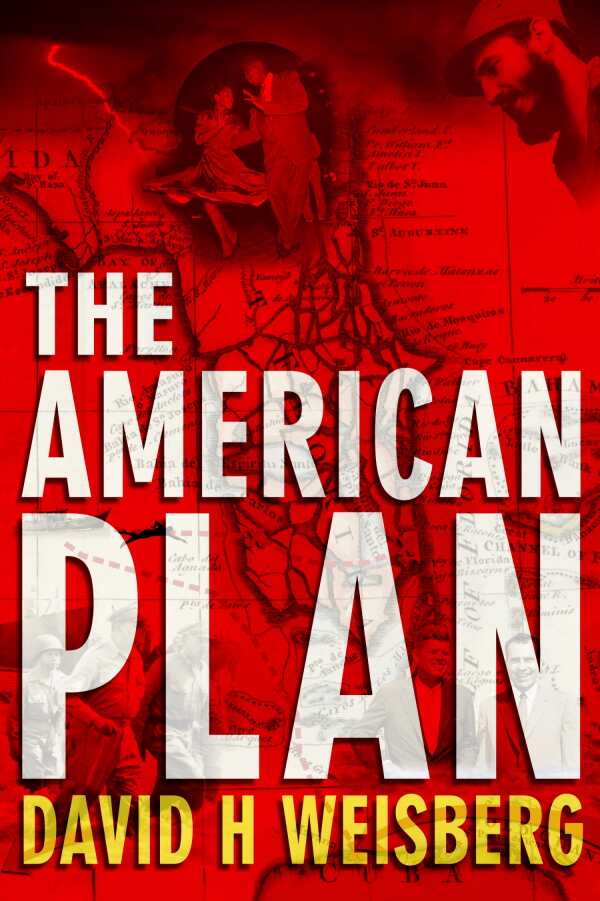
The American Plan
The American Plan never loses the pounding sense of uncertainty and risk that makes it a page-turner.
A dark exploration of a nation recovering from war, David H. Weisberg’s The American Plan is equal parts a conspiratorial thriller and a dive into the American psyche following the unsettling loss in the Korean War. Working in dualities and reflection, the lens moves between the war wounds of a nation and the war wounds of one man as both grapple with their loss of identity.
Philip Narby was born in the senseless bloodshed of the Korean War, a false identity for an American intelligence officer who has woken up in a field hospital with no firm memories of who he was. Finding himself involved in a conspiracy he doesn’t understand, Narby makes unsavory alliances to flee Korea for anonymity in pre-Castro Cuba only to find himself unable to get free from the cabalistic machinations of shadowy men in the smoke-filled rooms of industry and government.
With no memory of who his friends or foes are, Narby must rely on his instincts as he makes his way to Florida, where he becomes his own agent, a man without loyalties who plays faction against faction to ensure his survival. Through the haze of painkillers, booze, and marijuana, Narby deals with American interests in the Cuban Revolution, the rise of suburban sprawl in Florida, and his own cruel, if hazy, inner demons.
With an obvious emphasis on historical details Weisberg makes no attempt to paint over the rampant racism, sexism, anti-Semitism, and homophobia that were so overt in the 1950s and ’60s, with these evils infecting even the most progressive, open-minded, and sympathetic characters. Their inclusion feels true to life and proves to be fundamental in creating a living, breathing depiction of this moment in American history.
At times the struggle to maintain a balance between a grand, sweeping, postwar novel and a hard-boiled thriller becomes uneasy. While The American Plan does manage to occasionally bring these two themes together as one, it’s more common for the plot to switch between white-knuckle adrenaline and slow, introspective examinations of what it is to see values become no more than illusions. This can create abrupt changes to the pacing and tone of the novel, but with these moments taken in stride the payoff is a thriller where conspiracies put not just the protagonist’s life at risk but his sense of self as well.
With his seemingly unlimited resources, vivid sex life, and a brooding, maverick style, Narby exists somewhere at the meeting point of the James Bond and Hemingway masculine fantasies. These qualities may render him an ambivalent hero, if not a straightforward antihero, but he is undeniably compelling with an unpredictable streak that makes him impossible to look away from. Even when the themes of conspiracy take a back seat to his daily life, The American Plan never loses the pounding sense of uncertainty and risk that makes it a page-turner.
Reviewed by
Constance Augusta A. Zaber
Disclosure: This article is not an endorsement, but a review. The publisher of this book provided free copies of the book and paid a small fee to have their book reviewed by a professional reviewer. Foreword Reviews and Clarion Reviews make no guarantee that the publisher will receive a positive review. Foreword Magazine, Inc. is disclosing this in accordance with the Federal Trade Commission’s 16 CFR, Part 255.

